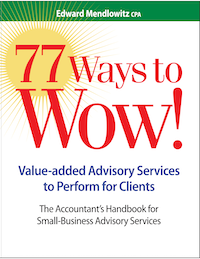new york’s accountants club of america names new officers and board members
…secretary margery gladston, treasurer new board members jacques e. boubli margery gladston edward mendlowitz sallie mullins thompson mendlowitz is a contributor to 卡塔尔世界杯常规比赛时间. see the full list of the… (search hits: 2 in body, 0 in title, 0 in categories, 0 in tags, 0 in other taxonomies, 0 in comments. score: 79726.83)










